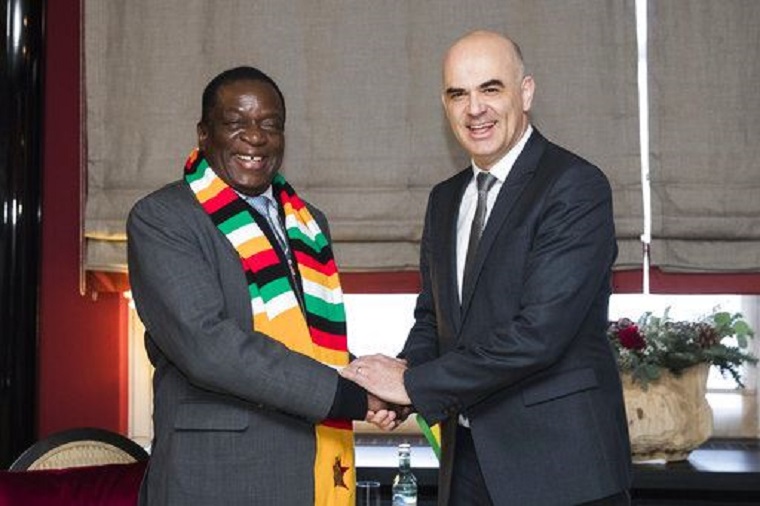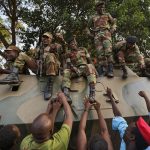 Zimbabwe’s elections on July 30 will be the first Robert Mugabe has not contested. Mugabe has just returned from Singapore where he was receiving medical treatment – as he was so often during the later years of his presidency. Rumours abound as to what type of medical care he receives there, ranging from simple treatment for eye complaints to radical cancer therapy.
Zimbabwe’s elections on July 30 will be the first Robert Mugabe has not contested. Mugabe has just returned from Singapore where he was receiving medical treatment – as he was so often during the later years of his presidency. Rumours abound as to what type of medical care he receives there, ranging from simple treatment for eye complaints to radical cancer therapy.
Meanwhile, his successor, Emerson Mnangagwa, is running strong in a campaign to earn an electoral mandate of his own. He recently survived a bomb attempt on his life during a rally in the city of Bulawayo, and responded by pointing the finger at Grace Mugabe and her allies. He has provided no evidence that she was involved.
Without Mugabe on the ballot in an election she was once keen to contest, Mnangagwa’s main opponent is instead an opposition alliance led by Nelson Chamisa of the Movement for Democratic Change (MDC).
Chamisa has brought along with him many senior MDC figures who were alienated by his predecessor as opposition leader, the late Morgan Tsvangirai. But his party is far from fully united. And among those excluded are leaders from the Ndebele-speaking west of the country, an area with its own grievances against Mnangagwa for his involvement in the violent pogroms of the 1980s – the Gukurahundi – which left many thousands dead.
Mnangagwa’s would-be assassins in Bulawayo, capital of the western provinces, could just have easily have been Ndebele separatists as supporters of Grace Mugabe. Whatever the truth, Mnangagwa will be happy to leave the opposition divided – but nonetheless, ZANU-PF is not going to roll over and die just because the Mugabes are out of the picture.
In fact, Mnangagwa has made a virtue of not being Mugabe, promising a new start and making the claim that only he has the authoritative standing to persuade the West to reinvest in his country’s battered economy. The West, however, has made it clear that the key precondition for any major reinvestment would be a clean election.
This will probably be the cleanest election for many years in Zimbabwe. Chamisa and his MDC Alliance have gone largely unmolested, and Chamisa has held rallies in what were once no-go regions for the opposition. The MDC platform has been covered on state television, and a real effort has been made to give public indications of a fair campaign.
But questions still linger over the integrity of the electoral roll, the printing and vetting of the ballot papers, and how any biometric element of the election would work. And there are still plenty of senior military figures in Mnangagwa’s cabinet and inner circle.
Continued next page
(736 VIEWS)


